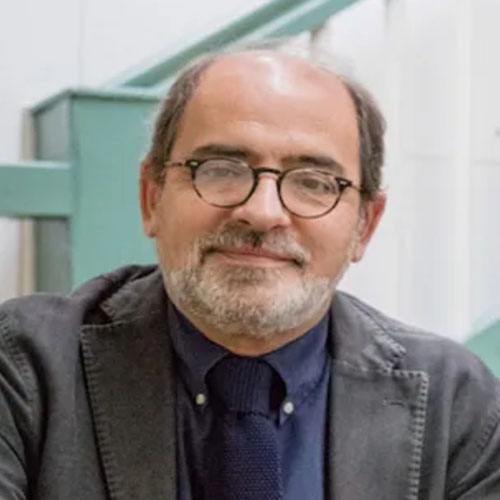He is Full Professor of Psychobiology, Department of Medicine & Surgery, Unit of Neuroscience, University of Parma, Italy.
Full Professor of Experimental Aesthetics, Institute of Philosophy, School of Advanced Study, University of London, UK.
Adjunct Senior Research Scholar, Dept. of Art History and Archeology, Columbia University, New York, USA.
Prof. Gallese is member of the Italian Society of Physiology, of the Italian Society of Neuropsychology, of the European Brain and Behavior Society and of the International Neuropsychological Symposium. Prof. Gallese is member of the Editorial Board of the scientific journals Social and Affective Cognitive Neuroscience, Cognitive Neuroscience, Philosophical Transactions of the Royal Society B, Phenomenology and the Cognitive Sciences, Biological Theory, Sistemi Intelligenti. He is the author of more than 200 scientific papers published in international scientific journals and books and of 2 books.
Honors
- 2016-20: Einstein Fellow – Berlin School of Mind & Brain, Humboldt University, Berlin, Germany.
- 2015: Kanizsa Lecture – Society for Gestalt Theory and its Applications, Parma, Italy.
- 2013-14: KOSMOS Professor Fellowship, Humboldt University, Berlin, Germany.
- 2013: Musatti Prize, Italian Psychoanalytic Society.
2010: Arnold Pfeffer Prize for Neuropsychoanalysis. International Neuropsychoanalysis Society, New York, U.S.A. - 2009: Doctor Honoris Causa, Catholic University of Leuven, Belgium.
- 2009: Paul Harris Fellow, Rotary Club Milano Scala, Italy.
- 2007: Grawemeyer Award for Psychology. University of Louisville, KY, USA.
- 2002: George Miller Visiting Professor Fellowship. University of California, Berkeley, USA.
Research Interests
Neuroscientist, his research interests focus on the cognitive role of the sensory-motor system in non-human primates and humans.
His current research themes include the study of the neural mechanisms at the basis of intentional understanding, empathy, aesthetic experience, and the investigation of the neural basis of Autism and Schizophrenia. To these purposes several experimental techniques are employed, such as single neuron recordings, TMS, high-density EEG and fMRI.
Scopus h-index (230 publications): 68.
Google Scholar h-index=93
i10-index = 242.


